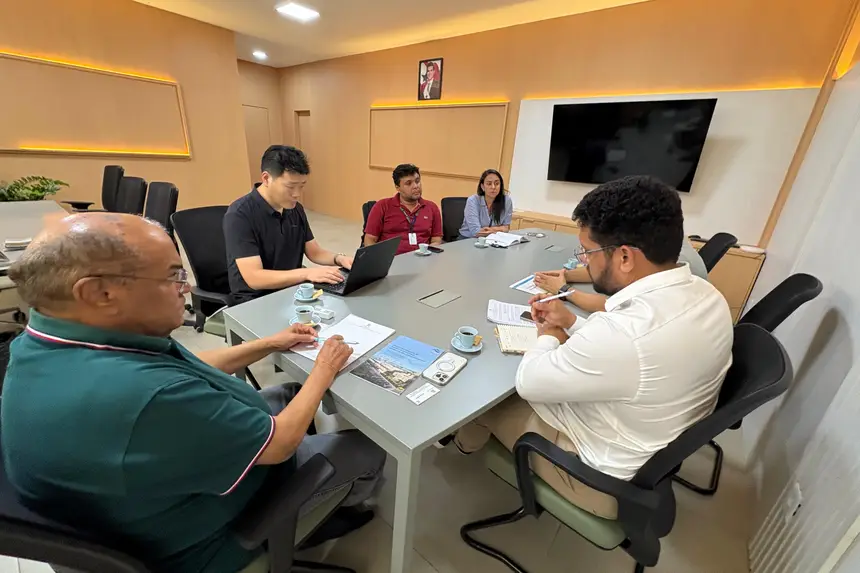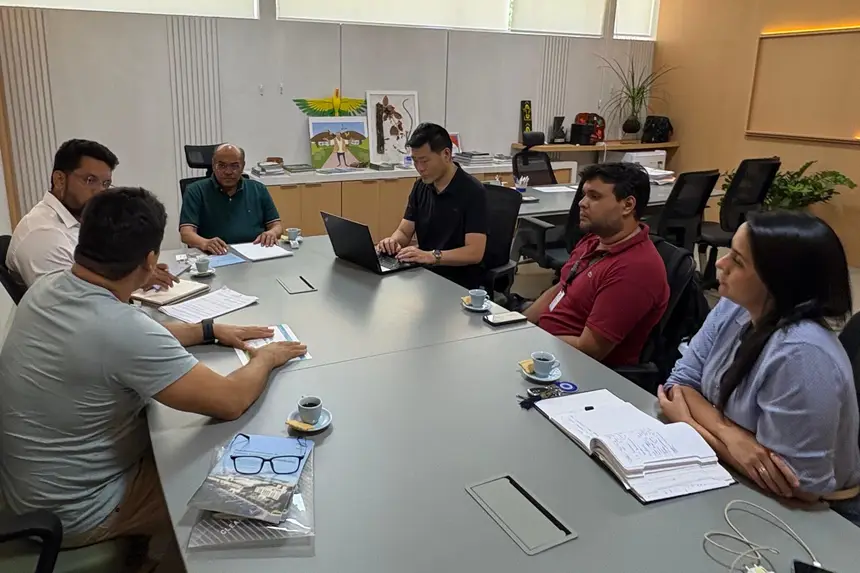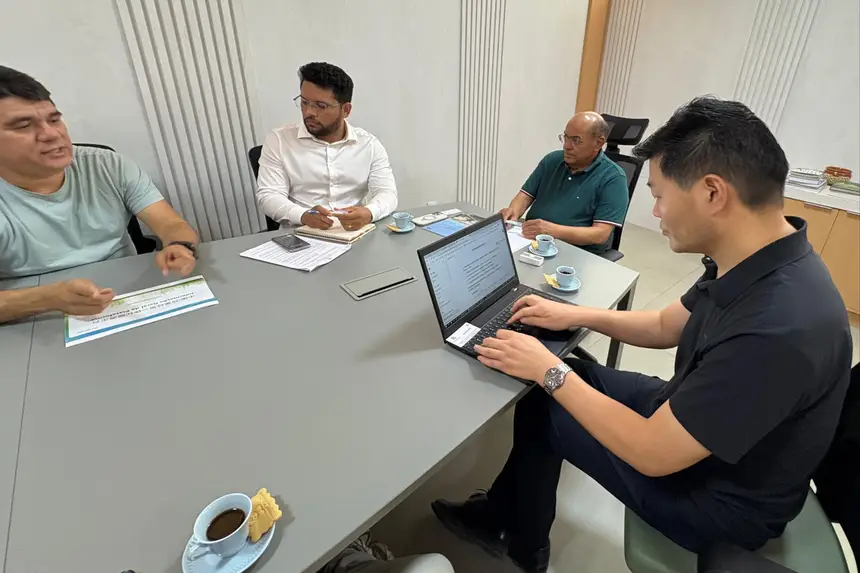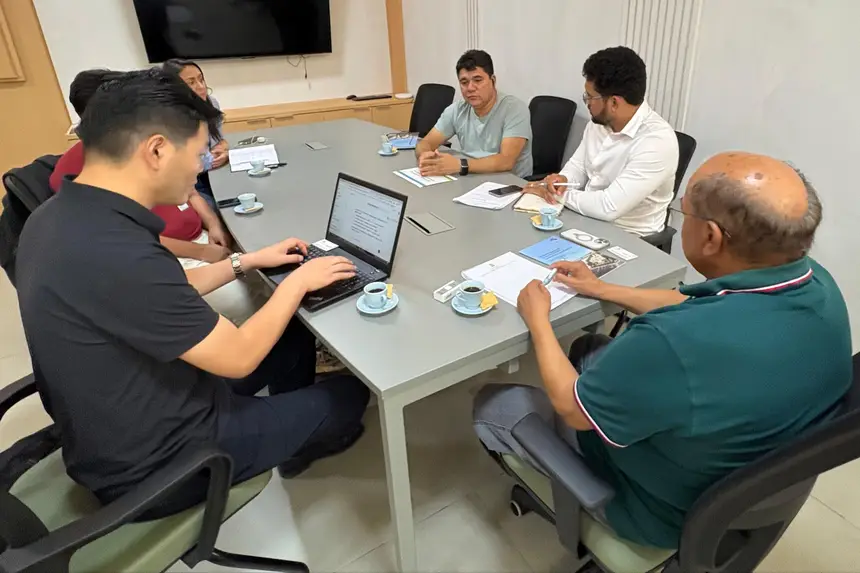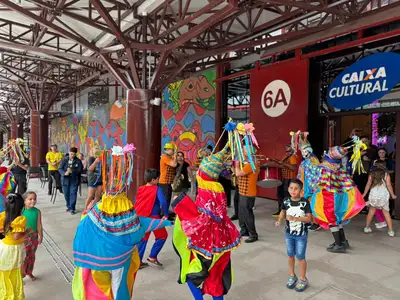Ideflor-Bio and Chinese institutions begin dialogue on sustainable solutions for Combu Island
The meeting marked the beginning of an institutional dialogue on possible partnerships aimed at solid waste management and basic sanitation on one of the islands of Belém
With the aim of developing integrated actions focused on sustainability in the Environmental Protection Area (APA) of Combu Island, an insular region of Belém, the Institute of Forest Development and Biodiversity of Pará (Ideflor-Bio) held a meeting on Tuesday (15) with representatives from the Executive Secretariat of Productive Inclusion of Belém, the Chinese investment platform Sinolac, and Ho-Hai University, located in Nanjing, Jiangsu province, an international reference in sanitation technologies and environmental engineering.
The meeting marked the beginning of institutional dialogue on possible partnerships aimed at solid waste management and basic sanitation in areas of high environmental sensitivity. The proposal is that, from this first meeting, pathways for technical cooperation between the involved institutions can be built.
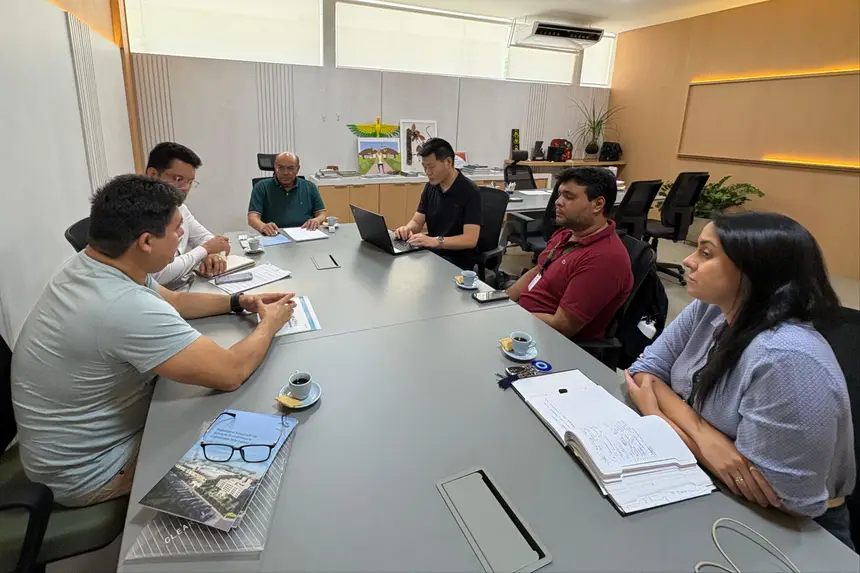
During the meeting, the president of Ideflor-Bio, Nilson Pinto, highlighted the importance of expanding dialogue with national and international partners in the search for solutions that respect the territory and value traditional communities. "We are taking the first step in a conversation that can contribute to new sustainable models for protected areas, such as Combu," said the manager.
Guidelines - Representing the City Hall of Belém, Secretary Pamela Massoud and her chief of staff, Almir Corrêa, presented the guidelines of the municipal policy of productive inclusion, emphasizing the circular economy and the reuse of waste in insular communities.
The Chinese delegation was composed of Marcius Nei from Sinolac and Professor Chang from Ho-Hai University, who expressed interest in expanding the exchange of experiences and sharing technologies developed in the areas of ecological sanitation, composting, and the recovery of degraded areas.
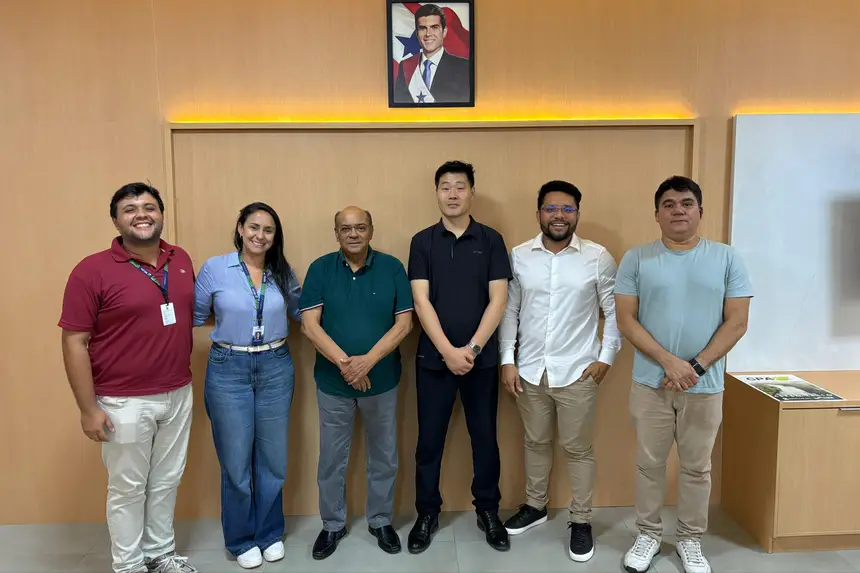
Collaboration - Also participating in the meeting was the director of Management and Monitoring of Conservation Units of Ideflor-Bio, Ellivelton Carvalho, who reinforced the strategic value of collaborative initiatives. "It is still an initial stage, but any conversation that unites efforts around environmental preservation and social development already represents a step forward," he informed.
The expectation is that, from this first conversation, technical agendas and joint initiatives can be built in the medium term, contributing to the strengthening of environmental policies in Pará.
Text: Pablo Allves - Ascom/Ideflor-Bio


